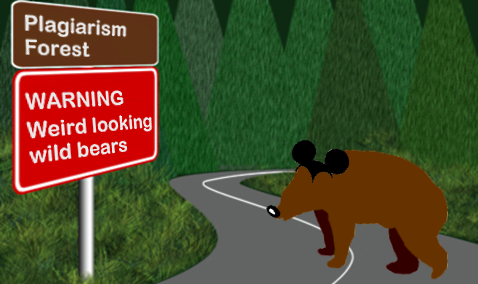Students: All your intellectual property belong to us

David Gewirtz, ZDNet's resident government blogger, wrote yesterday about the intellectual property policy which plagiarism software site Turnitin, which when essays are submitted for copy checks, the students' intellectual property rights are turned over to automatically to another company. Chris Dawson, resident part-Education part-Google blogging schizophrenic, argues that students should simply stop plagiarising thus negating the need for concern.
I have one very simple yet effective point to make. When the editors brought me on nearly two years ago, it was to write from a Generation Y perspective. While it may be the case that "adults" are setting the rules and occupying the front line of policy, we students are far from stupid and frankly, we are annoyed that we haven't even been asked.

It's important to note that I value both of my colleagues' opinions - one being a former professor with his own Wikipedia page (a decent benchmark standard in my eyes) and the other being surrounded by kids in an active learning environment on a day to day basis. But they're both wrong. Sorry, chaps. I get one use of the "arrogant, young smartarse" card and I'm throwing it in today, as it's near expiry anyway.
There are two points take into consideration arguing against the 'endemic' of students plagiarising essays, projects and other works:
- It is very rare for a student, in my experience, to plagiarise on any level knowingly. Referencing is the biggest issue. If something isn't referenced properly, even a letter or two out of place can kick off the red warning lights and bells ringing with frankly, stupid computer software. Though marking by the hand of the lecturer or professor may seem old-school and old-fashioned, it still happens a fair bit and allows a margin of error to be given without a simple automatic strike through of work. My essays are marked by hand, but then again my essays are referenced well and I don't and never have plagiarised. I've referenced myself though - crikey, that was a good moment.
- Even under intense pressure, stress and looming deadlines, it is still rare for a student to knowingly plagiarise - because there is no need to. Every student is aware of the risks taken and can result in either instant dismissal or worse - a mark of zero - which poses far more issues long term than being expelled. Essay deadline extensions are a more effective way of passing a deadline even though advance warning must be given unless exceptional circumstances dictate otherwise.
Plagiarism isn't necessarily about picking out the wheat from the chaff; it is about copying other peoples work without referencing or acknowledging it. I agree with Dawson that Turnitin exists through laziness to a greater extent, though it can of course have some useful properties when involved in such work as counter-terrorism.
However, in regards to the intellectual property and copyright of the work each individual student hands in, well there's already a catch. When you sign up and pay to earn your degree through hard work, late nights and caffeine misuse, you more often than not are already in a contract you have signed with the university to give away your IP rights to that institution. Once you hand it in, it is theirs and you will struggle dearly to get it back.
The issue of IP will be between the university and Turnitin, where subscribing academic departments will in turn waiver their given rights of intellectual property of that students work, to the company who owns the plagiarism software, iParadigms LLC.
It's like passing the hot potato except it's a willing transfer of rights from one to the other, and onto another. Gewirtz mentions that students should be at least aware of what they submit. The truth is, even if you embark upon a project similar to that of Google when it was starting off, your contractual obligations may still be to your university, meaning they could potentially already have invested in it by proxy by you being their student. I'm sure I wrote about this some time ago, but cannot find the link.
Point is, all your intellectual property "does belong to us". Every university has a different policy but by large, whatever you write and submit to your university becomes theirs. From there, they can do as they wish with it, and there is very little you can do about. You could of course always quit, but then you are destined to the startup market which you will inevitably fail after the first 18 months as they most often do.